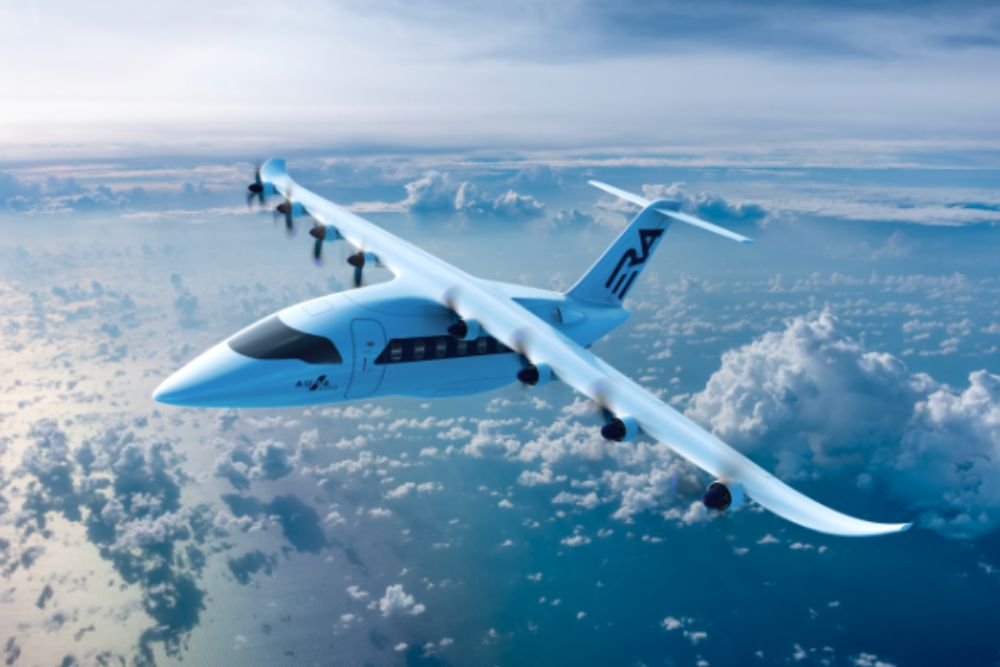The Rise of Electric Aircraft: How UK & US Airports Are Preparing for Takeoff
September 5, 2025
Let’s not sugarcoat it — air travel is one of the most polluting industries out there. And while everyone talks about going green, planes have been among the last to catch up. Now, things are starting to shift. Slowly, but seriously.
The rise of electric aircraft isn’t just a buzzword. It’s actually happening — and airports in the UK and US are finally making space (literally and figuratively) for it.
Electric Planes: What’s the Deal?
Talking about the rise of electric aircraft, Electric aircraft run on batteries instead of jet fuel. They’re quieter, cleaner, and cheaper to operate. They won’t take you from London to LA anytime soon, but for short regional flights — think 1-2 hour hops — they’re ideal.
Companies like Eviation, Rolls-Royce, and Vertical Aerospace are already testing electric planes. Some are designed to carry 9-19 passengers, others are more like flying taxis. Either way, they're real, and they’re closer than you might think.
What UK Airports Are Doing (And Not Just Talking About)
Several airports in the UK are going beyond PR statements:
- Heathrow plans to have electric aircraft charging stations by 2030.
- Bristol is already partnering with electric aircraft makers like Vertical Aerospace.
- Cranfield Airport (yeah, it’s small — but important) is running trials and test flights with electric and hybrid planes.
The government’s also putting money into this — not just to reduce emissions, but to keep the UK competitive in future aviation tech.
The US Is Moving Too — Maybe Faster
In the US, the FAA has finally started backing the electric push with real funding. A $1 billion grant is helping airports upgrade for new tech — including electric aircraft.
- Seattle-Tacoma is working directly with electric aircraft startups.
- LAX and San Francisco International are already planning dedicated infrastructure.
- Smaller regional airports, often ignored, could become key players again thanks to short-haul electric flights.
So yeah, it's not just hype — both countries are actually laying the groundwork.
What This Means for You (Especially If You Fly Business)
Talking about the rise of electric aircraft, if you fly often for work, this shift could be a game-changer in the next 5-10 years.
Imagine skipping major hubs and flying directly from a local regional airport to your meeting in another city. Shorter trips, smaller planes, faster boarding, less noise. Sounds good, right?
And no, you don’t have to sacrifice comfort. New electric planes are being designed with modern, high-end interiors — especially for business routes. While electric aircraft aren’t ready for global routes just yet, now’s a good time to start planning smarter.
Check out our latest
Business Class Flight tickets and Business Class Flight deals if you're thinking ahead. We keep tabs on what’s changing in the travel world — so you don’t have to.
The Honest Truth
Will electric planes take over tomorrow? No.
Batteries still need to improve, and regulations are slow. Infrastructure is expensive, and airports move at, well… airport speed. But progress is happening. Real investments are being made, and test flights are proving that electric aircraft aren’t just a concept anymore.
We’re not there yet — but it’s no longer just a fantasy.
Final Word
The rise of electric aircraft is changing how we think about flying. Not in the distant future, but soon — especially for regional and business travel. UK and US airports are investing in what comes next, and if you’re a frequent flyer, this shift will probably hit your radar sooner than you expect.
Want to stay ahead of it?
Contact us with our experts. Whether you’re booking a traditional long-haul or just want access to the best
Business Class Flight deals, we’ll help you fly smarter — and maybe even greener.
Have a look at
our website to know more.
ALSO READ:
Artificial Intelligence in Aviation: Rewiring the Skies


